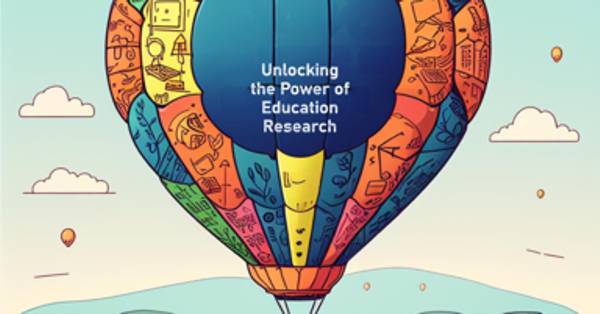Educational research plays a crucial role in shaping and improving the field of education, as well as the overall development of society. Its significance cannot be overstated, as it directly impacts the quality of education, teaching methods, and students’ future.
Also, educational research is essential for fostering a dynamic and effective education system that meets the ever-evolving needs of students and society. It serves as an instrument that enables educators, policymakers, and institutions to make informed decisions and continuously improve the quality and accessibility of education, ultimately contributing to the advancement of individuals and the professional community.
Educational research in the 21st century grapples with complex challenges, including the digital divide affecting equitable access to technology, rapid shifts in educational practices, data privacy, and security concerns, and the need to address systemic bias and inequity within research and educational systems.
Additionally, the ever-expanding globalization of education, difficulties in securing funding for diverse research projects, and the demands of interdisciplinary collaboration pose significant hurdles. To be effective, educational research must navigate these obstacles, adapt to a changing educational landscape, and remain committed to its core mission of improving learning outcomes for all students.
Digital Divide
As technology becomes increasingly integrated into education, a significant digital divide exists in terms of access to resources and devices. This gap can skew research findings and make it challenging to draw generalizable conclusions about the impact of technology on learning when not all students have equal access.
The digital divide in educational research refers to unequal access to technology and digital resources among students and schools.
In the 21st century, technology plays a pivotal role in education, offering tools for learning, communication, and access to information. However, not all students and institutions have equal access to these resources, which can profoundly impact educational research.
To address the digital divide in educational research, it is essential to acknowledge and consider these disparities when designing research studies, collecting data, and interpreting findings. Researchers and policymakers must work toward bridging the digital divide to ensure that all students have equitable access to the tools and resources necessary for a well-rounded and effective education, ultimately enhancing the quality and inclusivity of educational research.

Changing Educational Landscape
The rapid evolution of educational practices, including online and blended learning, makes it challenging for educational research to keep up. Traditional research methods may not adequately capture the nuances of these new learning environments.
The changing educational landscape in educational research refers to the ongoing transformation and evolution of the educational system, including shifts in teaching methods, learning environments, and the role of technology.
This changing landscape presents both opportunities and challenges for scholarly research. It is responsible for the integration of blended learning and online education, personalized learning, competency-based education, data-driven decision-making, teacher’s professional development, the introduction of emerging technologies, assessment redesign, equity, and inclusion.
Adapting to the changing educational landscape is essential for educational research to remain relevant and effective. Researchers must stay current with educational trends, engage in interdisciplinary studies, and adopt flexible methodologies to address the multifaceted challenges and opportunities presented by these shifts in education. The research conducted in this dynamic environment can provide valuable insights into the best practices, policies, and approaches that will shape the future of education.
Data Privacy and Security
With the collection of large amounts of student data for research purposes, data privacy and security concerns have grown. Researchers must navigate the complex ethical and legal issues surrounding data collection and storage.
Data privacy and security are significant concerns in educational research due to the collection, storage, and analysis of sensitive information about students, teachers, and educational institutions. These issues have gained prominence as technology plays an increasingly central role in education.
To address the issue of data privacy and security in educational research, researchers and institutions must prioritize ethical practices, invest in secure data storage and management systems, and educate all stakeholders about the importance of safeguarding sensitive information.
Collaboration with data protection authorities and experts in cybersecurity can help ensure that research initiatives meet the highest standards of privacy and security while still advancing the field of education.
Bias and Inequity
The issue of bias and inequity in educational research underscores the critical importance of addressing disparities in educational outcomes based on race, socioeconomic status, gender, and other demographic factors.
Educational research should strive for objectivity and fairness, but biases can inadvertently infiltrate the research process at various stages, from data collection to analysis and interpretation. These biases can perpetuate or even exacerbate existing inequities in education.
One aspect of this issue is the representation of underrepresented groups in research studies. If research samples are not diverse and inclusive, it becomes challenging to draw accurate conclusions and recommendations that apply to all students.
Moreover, the research community must actively work to overcome implicit biases and recognize systemic inequities that may be perpetuated within the research itself. Failure to address these biases can lead to policies and practices that disproportionately disadvantage historically marginalized groups, perpetuating educational inequities.
Researchers must adopt more inclusive and diverse research practices to combat bias and inequity in educational research. This involves actively seeking out underrepresented voices, considering intersectionality (how multiple social identities intersect), and conducting culturally responsive research.
Moreover, research findings should be scrutinized for potential bias, and researchers should be diligent in addressing and minimizing any unfairness or inequity in their methodologies and reporting. By consciously acknowledging and rectifying bias and inequity in research, the educational community can contribute to a more equitable and just education system.

Interdisciplinary Research
Many of the pressing challenges in education require interdisciplinary research. However, traditional academic structures and funding mechanisms often favor narrowly defined disciplinary research, making it difficult for researchers to collaborate and address complex issues.
Interdisciplinary research in educational research involves the integration of insights, methods, and perspectives from multiple academic disciplines to address complex issues in education. While it offers numerous advantages, it also presents significant challenges.
One primary benefit is that it allows researchers to take a more holistic and comprehensive approach to studying educational problems, recognizing that education is a multifaceted field influenced by various factors. Interdisciplinary research can lead to innovative solutions and a deeper understanding of the complex challenges facing education, such as educational equity, the impact of technology, and evolving teaching methods.
However, the challenges of interdisciplinary research are notable. Communication barriers between researchers from different disciplines, institutional structures that favor traditional disciplinary boundaries, and conflicts between research methodologies can hinder collaboration.
Moreover, the allocation of resources and time to coordinate interdisciplinary projects can be more demanding, and the potential for discipline-based biases can impact the objectivity of research outcomes. Despite these challenges, fostering a culture of collaboration, promoting interdisciplinary training, and securing institutional support are essential steps in overcoming the obstacles and reaping the benefits of interdisciplinary research in the field of education.
The Bottom Line
To conclude, while educational research is essential for improving educational systems, it faces a range of issues in the 21st century. Researchers must address issues related to technology, equity, data privacy, interdisciplinary collaboration, funding, and ensuring research is relevant and applicable in a rapidly changing educational landscape. Overcoming these challenges is vital to ensure that academic research continues providing meaningful insights and educational advancements.

